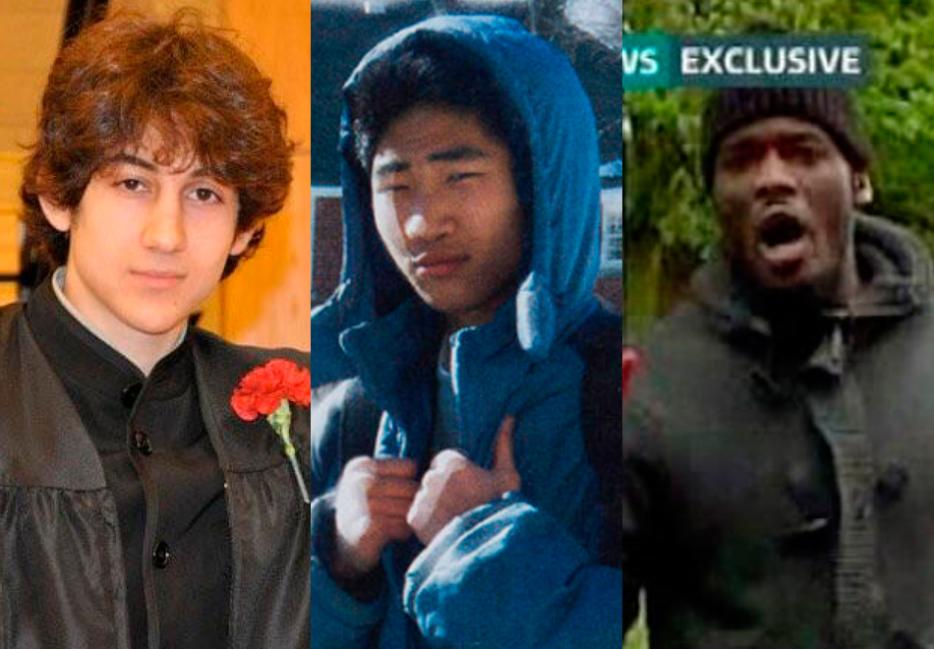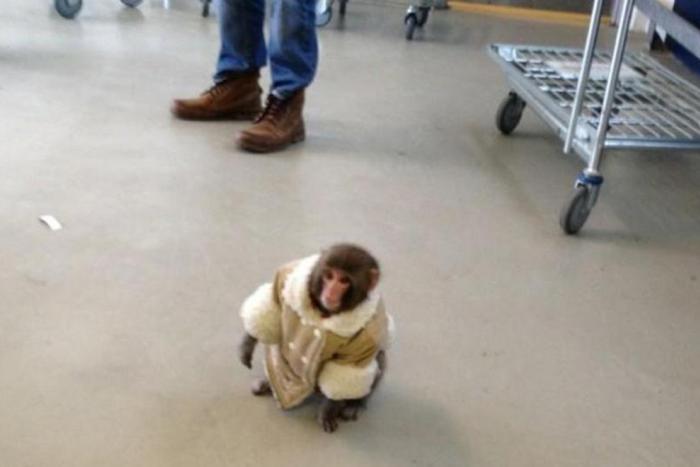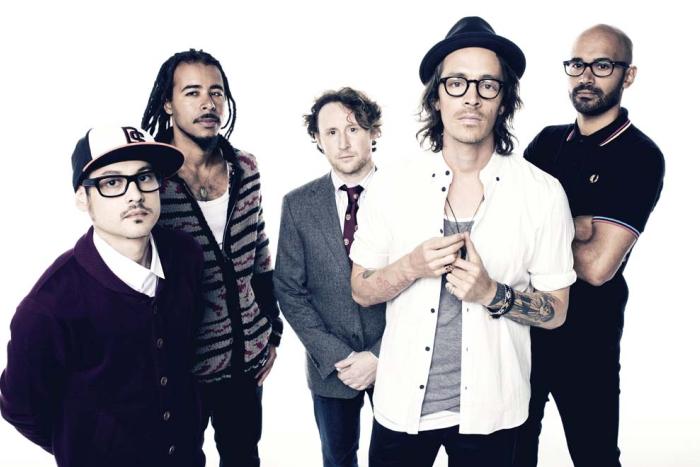Two young men hacked another young man to death in the Woolwich neighbourhood of London, England. They were seemingly combatants on opposite sides of an international war, one still as confusing to us as the Somme was to generals raised to line their soldiers up in rows to fire politely at each other until someone sent someone else a note saying, “I think that’s enough for the moment.” But they’re not. In fact, these young men are closer now than they have been in decades to being on the same side.
I’ve been wondering about young men recently. Specifically, about young men as agents and victims of political dramas since the beginning, their testosterone co-opted by this or that aggressive idea, lured by loyalty, adolescent alienation, intellectual and spiritual affectation or pure bloody enthusiasm into doing horrible things, and having horrible things done to them.
I’m thinking about them now, especially, as I’ve been sitting in pubs for the past few days in Northern Ireland, seeing a generation of men in their late teens and their twenties who are some of the first in several decades not to be swept up into this country’s Troubles. I see them at the bar, speaking to each other, as well as those whose twenties were spent seeking out or avoiding the sectarianism that still defines—though no longer controls—this dead beautiful corner of the island. I see evidence of their energies having gone elsewhere, into body-building of one kind or another, using either weights or chip butties to build the sort of corporeal armour a certain sort of young man needs to protect himself from and project himself into the world. It makes me wonder about breaking cycles, and whether this one is just cracked or if it is, as it seems, truly shattered. And it makes me wonder about the forming of new cycles, elsewhere, and whether we’re seeing a new gyre widening in our midst.
Aaron Yoon, Xris Katsiroubas, Dzhokhar Tsarnaev and Michaels Adebolajo and Adebowale have things in common that may prove to be harbingers of things to come. They’re young men, they were not raised as observant Muslims (if at all), they came of age in the aftermath of 9/11, and they carried passports that would allow them into the United States, and many other places, without visas. They’re a new breed, possibly part of a third wave of international Islamic terrorism. It’s a combination of religious fervor born of adolescent male alienation and juvenile political responses to genuine foreign policy outrages mixed with the same sort of run-of-the-mill secular sociopathy that led previous young men to shoot up schools, cinemas and politicians. How did we get here?
The first wave of Islamic terrorists were the hijackers and bombers of the 1970s and ’80s who were often as likely to take hostages and demand prisoner releases as they were to simply blow things up and kill folks. These were typically practical people looking to achieve defined results, often against enemies that were no less nefarious. Those comprising the second wave, however, were more nihilistic, born in circumstances they interpreted as bondage or oppression, willing to die in order to destroy that which those oppressors cared about, be it people, places or peace of mind. The world at large learned about this generation on Sept. 11, 2001—we in turn have just about learned to deal with them using renditions, black sites, informants, drones and other tools that are chipping away at the fundamentals of the society they’re being deployed to protect. Yay us.
But this third wave, Xris and Dzhokhar and the rest, which is overlapping with the older iterations, could be real trouble. These are people not only born or raised in the places they eventually want to attack, but who actually live most of their lives as the enemy and are snapping back against the hands that raised them. They’re the ultimate sleeper agents. Not only do we not know who they are, neither do they or their eventual handlers. They pop into existence, able to travel anywhere and do anything because none of the filters we have are set to detect spontaneous terrorists. The elder Tsarnaev was only on the FBI’s radar because Russia had twigged, and even so, they dropped it for lack of sufficient suspicion. There’s even a report that the MI5 tried to draft Adebolajo in 2010, misreading the degree of his interest in Al Shabaab seriously enough to think they could turn him. They’re apparently self-recruited, inspired to be part of what’s become the permanent force against which the West is allied.
Do you remember “wiggers?” Those white boys and girls who took many fashion, musical and linguistic cues from African-Americans and -Canadians, who were described using that distinctly un-PC term, a contraction of “white” or “wannabe” and, well, the suffix you’d expect? They scared the hell out of people, and that term existed to remind all involved of the dichotomy at hand: The supposed safeness and goodness of white and western culture, and its infiltration by an insidious other. Now, of course, elements of that style and the attendant affectations have become almost universal, evolved and dulled and largely accepted, borne along by the same sort of co-opting process that fuelled the ages of jazz and rock.
I wonder, then, if we might now be entering what could be the comparable but geometrically more violent age of the aspirant or wannabe Muslim, or “wuslim.” The splinter group Xris and possibly Aaron joined was called the Signatories in Blood. It’d make a fine name for a Muslim death metal band, and it may be a clue to all the bafflement surrounding those particular young men’s trajectory from good “middle-class” London, Ontario, boys who went to a “good school” (loaded adjectives courtesy of the CBC) to death and imprisonment in the name of Allah. It may also serve as a metaphor for what drew Dzhokhar and Adebolajo into their respective abjectories.
The Signatories in Blood were apparently a group that broke away from the Al Qaida in the Islamic Maghreb (AQIM) to shoot hostages and blow up a gas plant in Algeria this past January, where Medlej and Katsiroubas died. It’s so far from the realities of the lives of most young men in this country that it could sound darkly cool for some—just the sort of thing that might attract the overheated enthusiasm of new converts looking to inject some meaning into their shiftless lives. It’s more serious than wiggerdom, obviously, but it’s entirely possible it took root in similar ways.
I’ve long thought Canada a likely model for our increasingly global future, its mass of different and interacting cultures, by this point, an illegible palimpsest that gives us our meta-nationality. We have a form of multiculturalism, born of decades of liberal immigration policies, whose cultural radicalism is not always apparent. When coupled with the baseline Canadian identity, which despite Northrop Frye, Margaret Atwood and the CRTC’s best efforts always remained vestigial—not only hard to define but difficult even to grasp—you get the sort of free-floating cultural exchange many of us are so rightly proud of. But it’s precisely this sort of exchange, cultivated by schoolyard cliques and the adolescent search for selfhood, that seems to have led to the South Secondary Three (or four) and those who have followed them in the US and the UK.
They are fundamentally different from the Toronto 18, that 2006 gang that was not dissimilar to groups in Europe—cultural Muslims who became radicalized in their efforts to get back to their cultural and religious roots. Ali Medlej was of Muslim Lebanese descent, but Xris was Greek Orthodox and Aaron Yoon is Korean-Canadian. Though they had Muslim backgrounds, the Tsarnaevs were raised secularly. The Woolwich Michaels were raised Christian.
Read the National Post’s well-reported piece of a couple of months ago and you’ll get a familiar picture of the London boys, drawn into what sounds like a cool-kid group of Muslims at school. They were not radical from the sounds of it, just proud and self-identified, a place to belong for kids who didn’t like the jocks and skaters and whatever other Breakfast Clubs existed at South Secondary School in the middle of the last decade. “While the geography is somewhat clear,” the Post says, “from London to Edmonton to Morocco, Mauritania, Mali and, ultimately, to the ill-fated gas plant in In Amenas, Algeria—it is the psychological journey, from suburban rascals to jihadi commandos, that leaves friends befuddled.”
It shouldn’t. Our unique form of multiculturalism is possibly the best thing about Canada, the thing that may help us carry some of the promise Wilfrid Laurier saw for us in the 20th century into the 21st. The whole world is following in our footsteps, coming to Vancouver and Toronto to study how we make it work. Though they’re having a tougher time of it, the US and the UK are going in the same direction. Should we be surprised or befuddled if this great engine of cultural dynamism throws off a few incendiary sparks?
I’m on a bus out of Belfast now, going to take a look around Lough Erne, where the G8 leaders are meeting in a couple of weeks. I’ve heard there will be 13,000 police brought in, and the whole area around the lake will be shut down, closed to everyone who doesn’t have direct business with the summit. The officers with machine guns are back on the streets of Enniskillen, and there are even cameras installed along the riverways and the lough itself. Despite the Good Friday Agreement of 1998, this is still Northern Ireland, and there’s some fascination locally as to whether or not this gathering of leaders could become an attractive grandstand for someone looking to bully his or her disaffected way onto.
I think the chain’s been broken in Northern Ireland, and that if anything does happen, it’ll be a throwback from the old crowd, the fortysomethings itching for a bit of the old ultra-violence. But what of this new crew, these “wuslims,” these lone knife- and gunmen? What do you do when there’s no chain to break?






